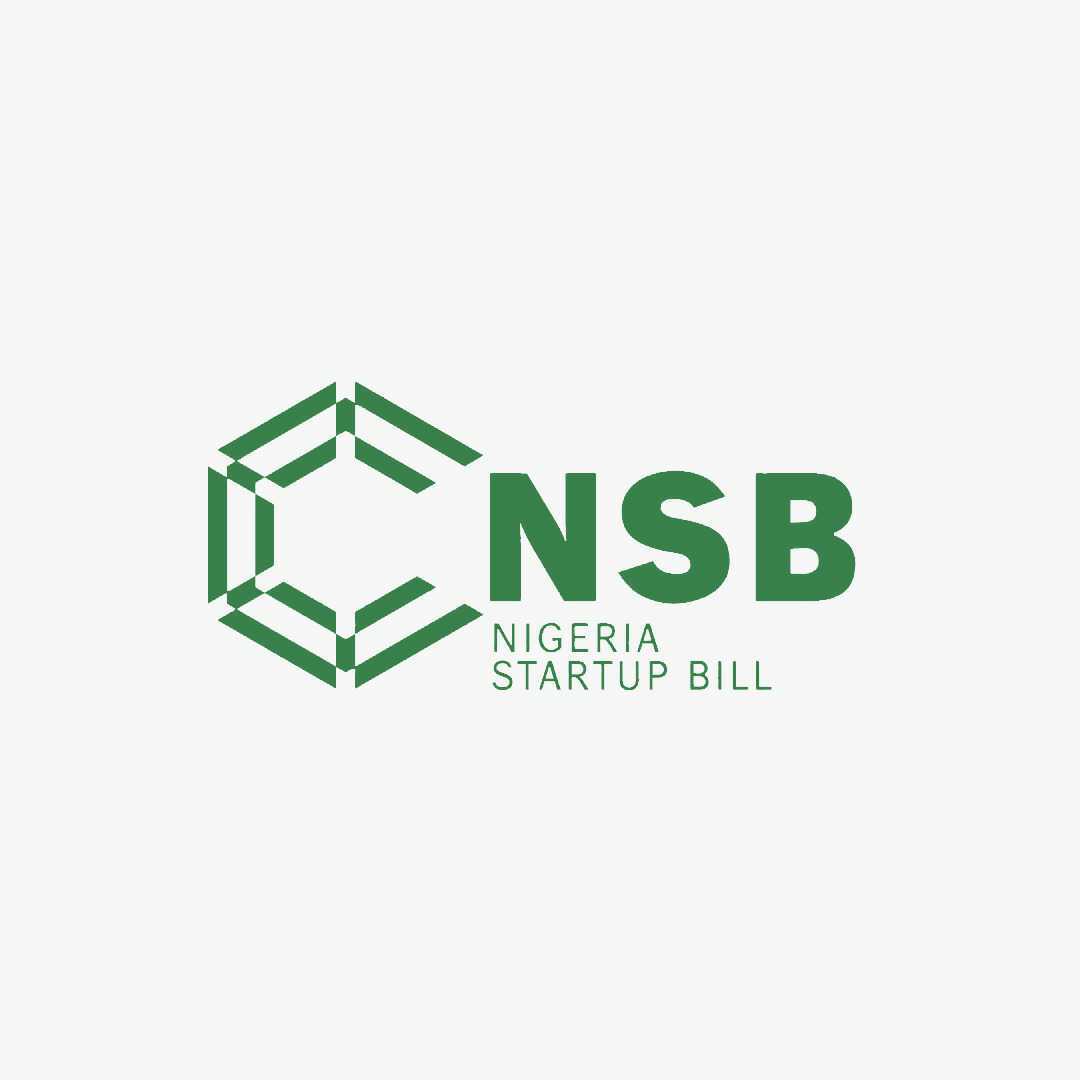
IN PARTNERSHIP WITH

Oh happy day ☀️
So, something huge is coming soon to TC Daily and you’re getting an exclusive sneak peek.
We’re announcing a milestone and introducing something new. If you want the tea before the rest of the party, join this waitlist and we’ll be in touch 🙂

In today’s edition
- Crypto market: South Africans lose $6.1 million in bitcoin scam
- Cellulant co-founder cleared after two years
- Starlink gets approved in Malawi
- NCC orders for rejects tariff hike in Nigeria
- TC Insights: Telecom’s next frontier
- Event: The PAADC Grand Finale
- Crossword: Mergers and acquisitions
- Job opportunities
CRYPTO MARKET: SOUTH AFRICANS LOSE $6.1 MILLION IN BITCOIN SCAM

|
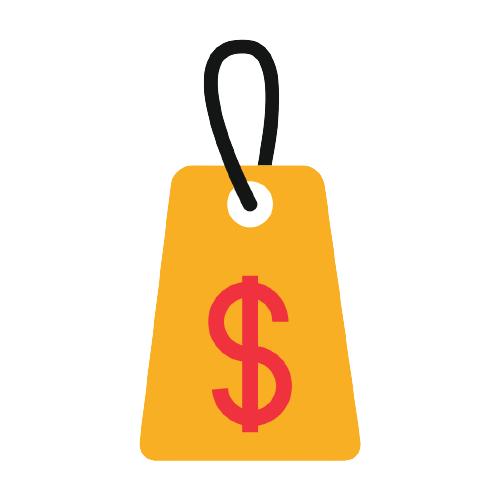
|

|
|---|---|---|
|
Bitcoin 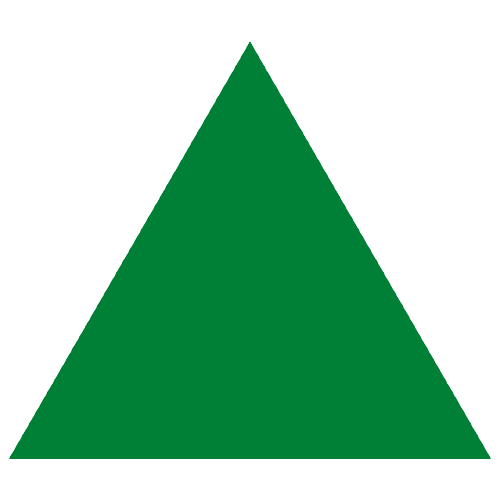
|
$19,520 |
+ 1.76% |
|
Ether 
|
$1,362 |
+ 3.90% |
|
BNB 
|
$276 |
+ 2.26% |
|
Solana 
|
$29.20 |
+ 4.22% |
|
Cardano 
|
$0.36 |
+ 2.87% |
|
|
Source: CoinMarketCap
|
|
* Data as of 02:15 AM WAT, October 24, 2022.
Here’s more interesting crypto news from South Africa.
Over the weekend, the National Consumer Commission (NCC) announced that 4,000 South Africans had lost R112 million ($6.1 million) in a bitcoin mining scheme called Obelisk.
With Obelisk, participants—who were recruited via social media—were encouraged to make investments in order to buy bitcoin mining equipment which they could use to generate daily income.
The machines cost between R340 ($18) and R450,000 ($24,800).
After investing, participants were added to WhatsApp groups, and some reported receiving minimal returns from investments which prompted them to make bigger investments for the promise of bigger returns. The problem came when they tried—and failed—to withdraw the larger returns. When they confronted Obelisk admins, they were kicked out of the group and locked out of the system.
The NCC received 25 complaints from victims who lost about R750,000 ($41,500), but its preliminary investigation shows that there were over 4,000 participants spread across eight WhatsApp groups who lost R112 million ($6.1 million). It declared Obelisk a multiplication scheme and urged South Africans to beware of such schemes.
The NCC also revealed that Obelisk is operated by non-South African citizens who are using South African bank accounts and either South African or non-South African cellphone numbers.
In 2021 alone, South Africa lost about R1.8 billion ($99 million) according to the Global State of Scams report.
The good news is that the South African government is moving to address these scams. Last Wednesday, the Financial Sector Conduct Authority (FSCA) announced that crypto assets in the country would be treated as financial products which will help authorities tackle fraud.
The FSCA also announced that starting next year, crypto platforms in the country will need to get licensed in order to continue operations.
CELLULANT CO-FOUNDER CLEARED AFTER TWO YEARS

In 2020, Bolaji Akinboro, co-founder and head of Nigeria operations at Cellulant, was forced to resign from his role after accusations of misconduct were levied against him.
Akinboro oversaw operations of one of Cellulant’s products Agrikore, a marketplace that reportedly helped about 15 million farmers across Nigeria supply raw commodities.
During a compliance review of Agrikore, Cellulant discovered that 14 staff members at Agrikore had inappropriately transferred funds from Agrikore wallets. Cellulant shut down Agrikore and laid off 35 staff members related to the misconduct and what it described as “unprofessionalism on Agrikore.”
In a statement released later, Cellulant also claimed that Akinboro took responsibility for the compliance issues and resigned from all management positions in Cellulant.
In 2021, however, Akinboro levied a $10 million lawsuit against Cellulant for malicious professional libel, breach of due process, evidence tampering and witness suppression. Another unnamed employee who also sued Cellulant for ₦529 million ($1.2 million) for wrongful termination claimed that the company failed to follow due process during the termination of the 35 staff members. The employee in question was fired before Cellulant completed its audit.
Other employees also alleged that the company was more eager to terminate their employment and bury Agrikore than it was to resolve a compliance issue on an important product.
In response, Cellulant said all of the allegations by the sacked employees were “false and unfounded.”
And now?
It appears the allegations weren’t unfounded after all.
After two years of litigation, Cellulant arrived at an out-of-court settlement with Akinboro and cleared him of all allegations of financial misconduct and personal improprieties.
“I acknowledge and commend the courage demonstrated by the Board of Cellulant in publicly setting the record straight on all questions and aspersions that have arisen in the past two years regarding my exit from Cellulant, and putting to rest any notion of wrongdoings from my part,” said Akinboro.
Don’t just send money, send money fast. Send and receive money directly to mobile wallets, bank accounts, Barter or through cash pickup with $end.
Visit send.flutterwave.com and do it now!
This is partner content.
STARLINK GETS APPROVED IN MALAWI
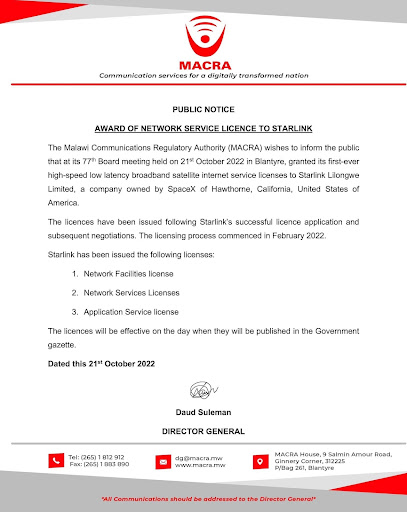
Earlier this year, Elon Musk’s satellite internet service, Starlink, received the licence to operate in Nigeria and Mozambique.
The Malawian government recently followed suit. Last week, the director general of the Malawi Communications Regulatory Authority (MACRA), Duad Suleman, announced that Starlink has licences to operate in the country. The service now has a network facilities licence, a network services licence, and an application service licence in Malawi.
This comes seven months after MACRA executives met with Starlink representatives at the World Mobile Congress (WMC) in Barcelona in February 2022.
Does this mean Starlink is coming to Malawi?
Nope. At least not anytime soon.
In May this year, both Nigeria and Mozambique announced that Starlink had received operational licenses. In Nigeria, the service was scheduled to launch in August 2022; it’s October now and Nigeria is yet to see hide nor hair of Starlink.
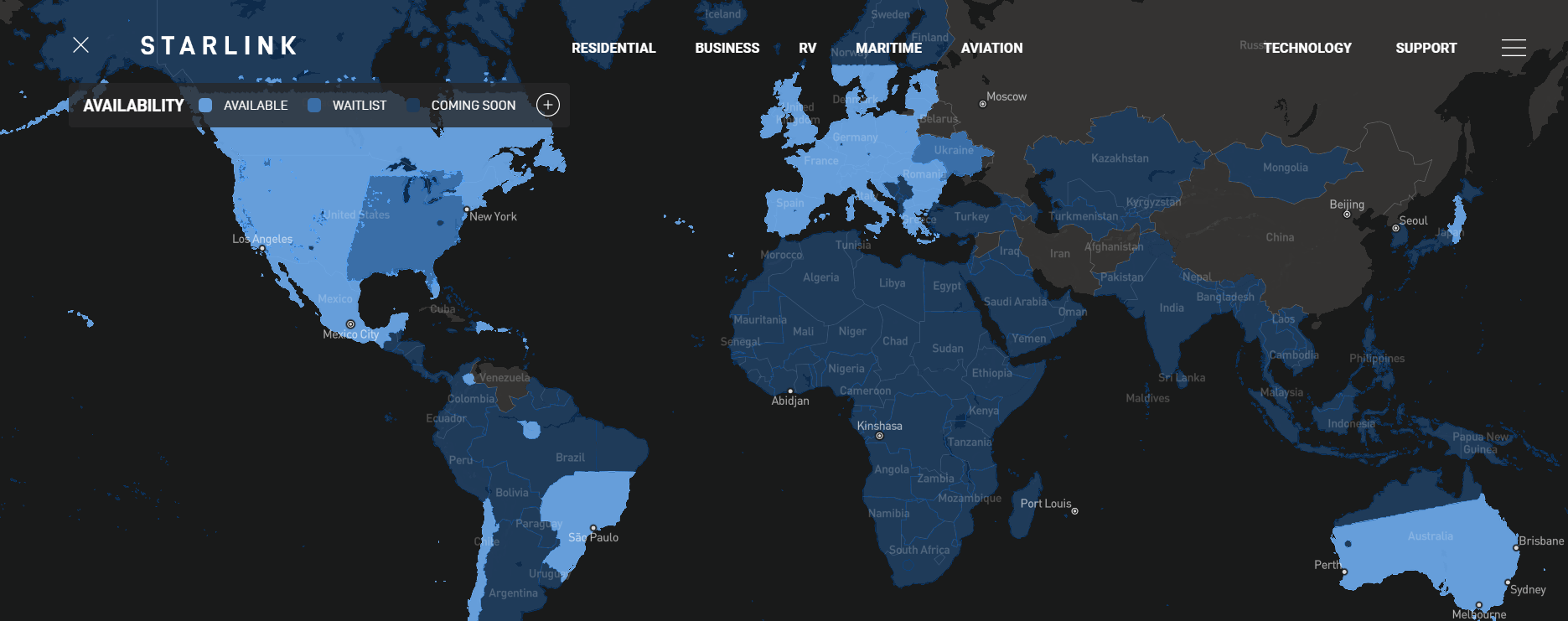
According to the Starlink availability map, the service is neither available in any African country nor on the waitlist. The whole continent is designated as “coming soon”.
Malawi might have given Starlink the go-ahead, but it’s going to take some time before the satellite shines its light on the continent.
NCC REJECTS TARIFF HIKE IN NIGERIA

With rising inflation rates in Nigeria, telcos are looking to pass their rising operational costs to their consumers.
Earlier this month, MTN and Airtel increased some internet data prices by at least 10%.
Nigeria’s telco regulator, the Nigerian Communications Commission (NCC), initially approved these tariff hikes but later reneged on its agreement.
According to a statement by the NCC, “Even though the tariff adjustment was proposed and provisionally approved by the management, pending the final approval of the board of the commission, in the end, it did not have the approval of the board of the commission. As a result, it is reversed.”
The regulator said that this decision was taken after a “critical and realistic review and analysis of the operational environment and the current business climate in Nigeria”.
Data prices in the country are relatively affordable, per the Alliance for Affordable Internet (A4AI) which posits that it costs the average Nigerian 1.66% of their monthly income to get 1GB of mobile data. But unchecked hikes threaten this affordability, and raise the chances of 1GB exceeding 2% of monthly income.
TC INSIGHTS: TELECOM’S NEXT FRONTIER
Africa’s telecommunication industry has grown with record-breaking revenue in over two decades. Telcos have extended coverage across the continent from cities to rural communities. On a continent with over 1 billion people, about 477 million Africans are unique mobile subscribers today and roughly 272 million of these mobile subscribers have access to mobile internet, according to a recent report by GSMA.
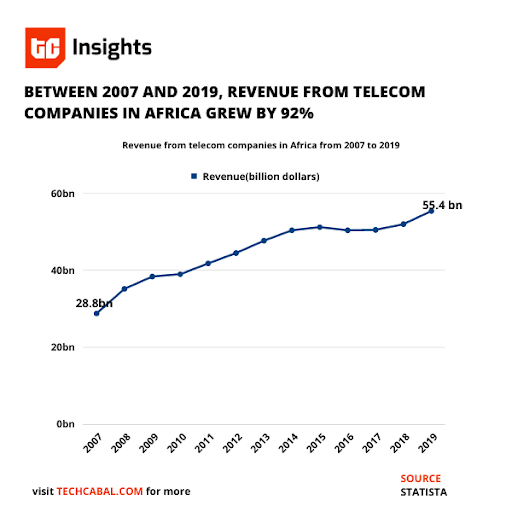
Between 2007 and 2019, revenue from telecom companies operating in Africa grew by 92% from $28.8 billion to $55.4 billion.
Part of the efforts by operators to remain a driving force is to push towards universal coverage, boost internet coverage and diversify revenues by introducing new services. One area for potential revenue growth for telcos is mobile money. By leveraging the high mobile phone penetration across the continent, they can increase the average revenue per user through the use of mobile wallets for financial services. Established names like Orange, MTN, Vodacom, Airtel, and Telkom have made the switch already, providing financial services like loans to users and cashless payments. The ripple effects are being felt already as MTN recorded a 28% jump in mobile money transactions across the continent in the first and second quarters of 2022.
While financial services are a key driver of future growth, traditional revenue streams like voice and data will remain key drivers of revenues for telcos. GSMA predicts that regional smartphone penetration will increase from 45% today to 65% by 2025. Government regulation can speed up these processes. For instance, Nigeria released a new broadband plan this year which aims to achieve 70% penetration by 2025.
Still, by 2025, there will be just under 30 million mobile 5G connections in sub-Saharan Africa, equivalent to just 3% of total mobile connections according to an estimate by GSMA. By the same date, 3G and 4G are expected to account for 58% and 27% of connections respectively.
The key challenge operators face is how to invest in network capacity upgrades amid tough economic conditions, while consumers and governments push for price reduction. Operators plan to invest $52 billion in infrastructure between 2019 and 2025 as mobile data consumption in sub-Saharan Africa grows more than fourfold. Striking a balance between investment and services pricing will be instrumental for the next frontiers of telecommunications in Africa.
Follow us on Twitter, Instagram, and LinkedIn for more funding announcements. You can also visit DealFlow, our real-time funding tracker.
Increase your online sales with a Paystack Storefront – a free, beautiful seller page that helps you bring creative ideas to life.
👉🏾 Learn more at paystack.com/storefront.
This is partner content.
EVENT: THE PAADC GRAND FINALE

PAADC is holding its sixth Grand Finale on Saturday, October 22 October at UNILAG’s Main Auditorium
From 9 AM, witness stellar pitches, a job fair, exciting contests, a keynote speech, and panel sessions, as the event is set to be the grandest in PAADC’s history.
CROSSWORD: MERGERS AND ACQUISITIONS
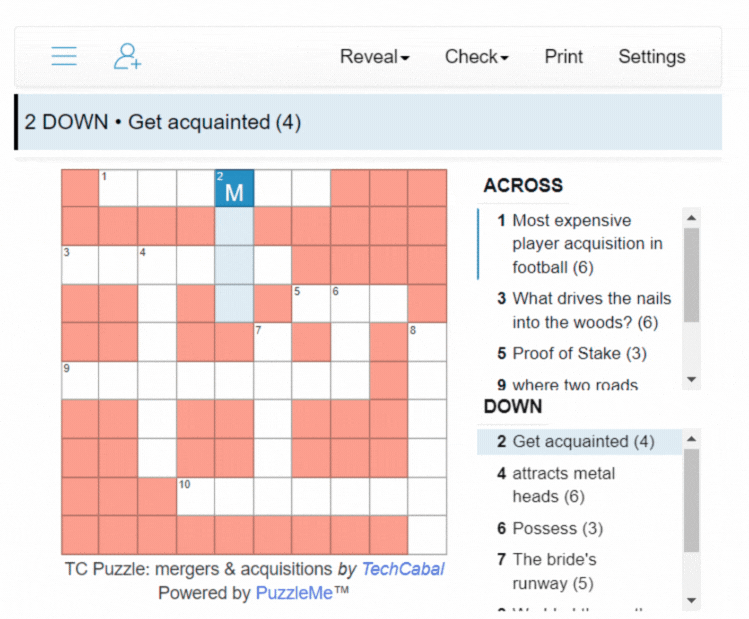
The weekends are for weddings in Lagos, the capital of Nigeria’s startup scene. Here is a fun crossword about separate things merging into one. Play this crossword.
IN OTHER NEWS FROM TECHCABAL
Over the last four months, at least five African startups have shut down. Do these failing startups have a frugality problem?
Google partners with local community to restore and preserve the historical Osun Sacred Grove.
This Digital Nomads guest shares her silver lining in the Russo-Ukrainian war: leaving medicine in Ukraine to study journalism in Canada.
JOB OPPORTUNITIES
- Big Cabal Media – Editor-in-Chief, Citizen – Lagos, Nigeria (Hybrid)
- Big Cabal Media – Community Manager, Zikoko Memes – Lagos, Nigeria (Hybrid)
- Big Cabal Media – Content Creator, Zikoko Memes – Lagos, Nigeria (Hybrid)
- Big Cabal Media – Learning & Development Executive – Lagos, Nigeria (Hybrid)
- TechCabal – News Editor – Africa
There are more jobs on TechCabal’s job board. If you have job opportunities to share, submit them at bit.ly/tcxjobs.
What else is happening in tech?
- Education Unusual? How Microsoft’s technical partner Wootlab, is leveraging digital literacy upskilling initiatives to build Africa’s next generation of digital talents.
- Kenya’s new stance on GMOs is pitting politicians against scientists.
- President Ruto’s Plan for Kenya’s Digital Superhighway.


















